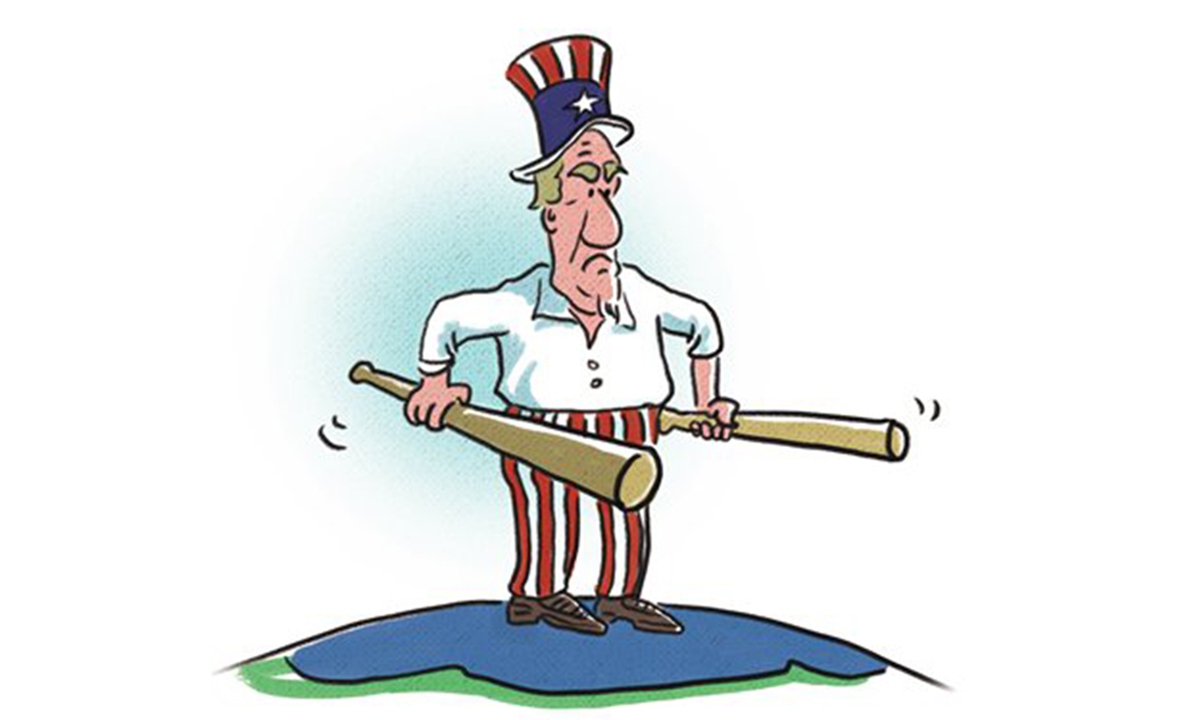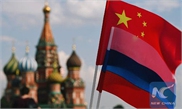It’s not a fight about human rights, but about hegemony and anti-hegemony: Global Times editorial

Illustration: Liu Rui/GT
Chinese State Councilor and Foreign Minister Wang Yi and Russian Foreign Minister Sergei Lavrov on Tuesday issued a joint statement. This is the first time China and Russia, two permanent members of the United Nations Security Council, systematically interpreted their ideas on human rights, democracy and the international order. It has a strong focus on the current international situation.The EU, US, UK and Canada on Monday banded together to announce sanctions on Chinese officials over alleged human rights violations in Northwest China's Xinjiang Uygur Autonomous Region. Though these moves are symbolic, it was a rare concerted move directed at China by the West. It is an attempt to force China to accept interference from outsiders. This was a crude assertion of their dominance in world affairs.
There are a number of reasons for the serious turmoil and even the fragmentation of the current international system. But the most important reason is the US and its main allies are defining human rights and democracy in terms of a set of values that can be used as leverage to consolidate Western hegemony with the US as its center. They know that it will impact the governance of big developing countries like China and Russia and bring chaos to these countries, but they insisted in doing so as a way of playing strategic games.
This is unacceptable. The essence of this "struggle" for human rights is a struggle between hegemony and anti-hegemony. It is a struggle between pursuing the development of human rights and playing with human rights for geopolitical purposes, between respecting the sovereignty of all countries with no interference in each other's internal affairs or a few countries dominating the majority.
Double standards in recent times have been running rampant. Who is responsible for the development of human rights and democracy in each country? Should it be the country's sovereign government or external countries and forces? Under international law, all sovereign countries are equal regardless of size. This is the basis of the international law and the UN Charter. Is it time that a few countries out of the 193 members of the UN have the right to make policies for the majority of countries?
The US strictly prohibits the infiltration of other countries into its own affairs, including its election, but the US and its allies have infringed upon the political affairs of quite a number of countries, destabilized these countries, and led to many tragedies. If all the countries believe they have the right to lecture others and rally support for such aggression, does the world still have order?
China frowns upon the proliferation of guns in the US. Just on Monday, a new gun shooting took place in Colorado, causing the death of at least 10 people, while the Atlanta shootings are still haunting Americans. "Gun shooting" is a frivolous phrase to describe the incidents. They are slaughters and severe human rights violations. Guns should be banned throughout the US immediately if according to China's philosophy of protecting people's safety. And those who hinder the process should be sanctioned, or even tried in court.
Washington, please tell us, should China raise such a serious demand? If Washington thinks China has no right to do so, where does the US obtain the power to lecture China about what it should do over Xinjiang governance?
There is no basis for China, Russia and many other developing countries to discuss human rights issues with the West, because what the West really cares about is not human rights, but the right to define human rights one-sidedly. This is an expression of hegemony in which only the Western countries can set the rules for the world. China and Russia will never allow the West to be this rude and insolent, nor will they succumb to the ambitions of the West.
We believe that most of the global community can see through the West's suppression of China and Russia, as well as understand what the two countries are strongly resisting. Only the few that benefit from the arrogant hegemony putting the priority of the interests of the powerful countries first would be fond of the idea. It might be a protracted fight, but justice will be on the side of China, Russia and the majority of the developing countries.


